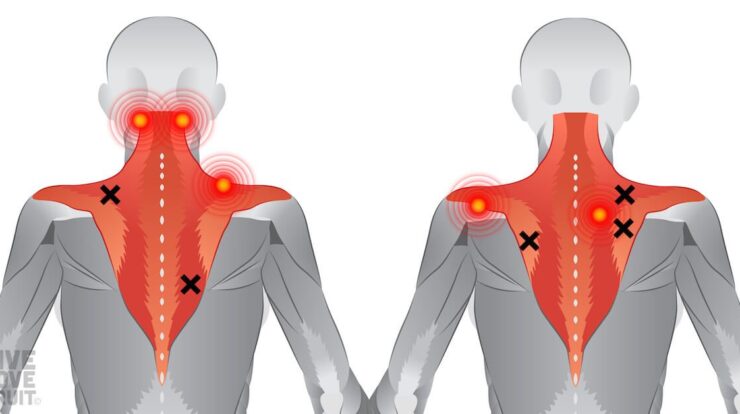
Tired of expensive dentist visits? Learn how to cure gum disease without a dentist! This comprehensive guide empowers you with natural remedies, home care techniques, and lifestyle changes to restore your oral health.
Gum disease, a common yet preventable condition, can lead to serious complications. But don’t worry! With the right knowledge and a bit of effort, you can reverse its effects and maintain healthy gums.
Natural Remedies for Gum Disease
Gum disease, also known as periodontal disease, is a common condition that affects the gums and the supporting structures of the teeth. It can cause a variety of symptoms, including bleeding gums, swelling, pain, and bad breath. While gum disease can be treated with conventional methods, such as scaling and root planing, there are also a number of natural remedies that can help to alleviate symptoms and improve oral health.
Herbal Mouthwashes
Herbal mouthwashes are a great way to reduce inflammation and kill bacteria in the mouth. Some of the most effective herbs for gum disease include:
- Green tea:Green tea contains antioxidants that help to protect the gums from damage. It also has antibacterial properties that can help to kill bacteria that cause gum disease.
- Sage:Sage is a natural antiseptic that can help to kill bacteria and reduce inflammation. It also has astringent properties that can help to tighten the gums.
- Myrrh:Myrrh is a natural gum that has antibacterial and anti-inflammatory properties. It can help to reduce bleeding and swelling of the gums.
Essential Oils
Essential oils are concentrated plant oils that have a variety of therapeutic properties. Some of the most effective essential oils for gum disease include:
- Tea tree oil:Tea tree oil is a powerful antibacterial and antifungal agent. It can help to kill bacteria that cause gum disease and reduce inflammation.
- Clove oil:Clove oil is a natural anesthetic that can help to relieve pain and inflammation. It also has antibacterial properties that can help to kill bacteria that cause gum disease.
- Peppermint oil:Peppermint oil is a natural antiseptic that can help to kill bacteria and reduce inflammation. It also has a cooling effect that can help to soothe sore gums.
Dietary Supplements
There are a number of dietary supplements that can help to support gum health. Some of the most effective supplements include:
- Vitamin C:Vitamin C is an antioxidant that helps to protect the gums from damage. It also helps to strengthen the immune system, which can help to fight off bacteria that cause gum disease.
- Vitamin D:Vitamin D is important for bone health, but it can also help to improve gum health. Vitamin D helps to regulate the immune system and reduce inflammation.
- Coenzyme Q10:Coenzyme Q10 is an antioxidant that can help to protect the gums from damage. It also helps to improve blood circulation, which can help to bring nutrients to the gums.
It is important to note that natural remedies are not a substitute for professional dental care. If you have gum disease, it is important to see a dentist for a diagnosis and treatment plan. However, natural remedies can be a helpful way to supplement your dental care and improve your oral health.
Home Care Techniques for Gum Health
Maintaining a healthy smile involves implementing effective oral hygiene practices that promote gum health. Proper brushing and flossing techniques, along with selecting the right toothpaste and mouthwash, are crucial for preventing and treating gum disease. Regular dental check-ups and professional cleanings are equally important for optimal gum care.
Effective Oral Hygiene Practices
Effective oral hygiene practices include brushing twice a day with a soft-bristled toothbrush and fluoride toothpaste. Hold the toothbrush at a 45-degree angle to the gum line and gently brush in circular motions. Flossing once a day is essential for removing plaque and bacteria from between teeth where brushing cannot reach.
Choosing the Right Toothpaste and Mouthwash
Selecting the right toothpaste and mouthwash is crucial for maintaining gum health. Look for a toothpaste that contains fluoride, which helps strengthen tooth enamel and prevent cavities. A mouthwash with antibacterial properties can help reduce plaque and bacteria buildup. Consult with your dentist for personalized recommendations.
Regular Dental Check-ups and Professional Cleanings, How to cure gum disease without a dentist
Regular dental check-ups and professional cleanings are essential for maintaining gum health. Your dentist can detect early signs of gum disease, provide deep cleaning to remove plaque and tartar, and offer guidance on proper oral hygiene techniques. Aim for check-ups and cleanings every six months to ensure optimal gum health.
Lifestyle Modifications for Gum Disease Prevention: How To Cure Gum Disease Without A Dentist

Gum disease is a common problem that can lead to serious health issues if left untreated. While there are many factors that contribute to gum disease, lifestyle choices play a significant role. By making some simple changes to your lifestyle, you can help prevent and treat gum disease.
One of the most important things you can do to improve your gum health is to quit smoking. Smoking damages the gums and makes them more susceptible to infection. Quitting smoking can help to improve blood flow to the gums and promote healing.
Another important factor in gum health is nutrition. Eating a healthy diet that is rich in fruits, vegetables, and whole grains can help to keep your gums healthy. These foods contain vitamins and minerals that are essential for gum health.
In addition, avoiding sugary foods and drinks can help to reduce the risk of gum disease.
Stress can also contribute to gum disease. When you are stressed, your body produces hormones that can damage the gums. Managing stress through exercise, meditation, or other relaxation techniques can help to improve your gum health.
Quitting Smoking
Quitting smoking is one of the best things you can do for your overall health, including your gum health. If you are a smoker, talk to your doctor about ways to quit. There are many resources available to help you quit, including support groups, counseling, and medication.
Maintaining a Balanced Diet
Eating a healthy diet is essential for good gum health. Make sure to eat plenty of fruits, vegetables, and whole grains. These foods are rich in vitamins and minerals that are essential for gum health. In addition, avoid sugary foods and drinks, as these can contribute to gum disease.
Managing Stress
Stress can contribute to gum disease. When you are stressed, your body produces hormones that can damage the gums. Managing stress through exercise, meditation, or other relaxation techniques can help to improve your gum health.
Over-the-Counter Treatments for Gum Disease

Over-the-counter (OTC) treatments for gum disease offer convenient and accessible options for managing symptoms and improving gum health. These treatments include medicated mouthwashes, gels, and lozenges, each containing active ingredients that target specific aspects of gum disease.
Medicated Mouthwashes
Medicated mouthwashes are effective in reducing plaque and bacteria buildup on the teeth and gums. The active ingredients in these mouthwashes vary, including:
Chlorhexidine gluconate
An antiseptic that kills bacteria and prevents plaque formation.
Cetylpyridinium chloride (CPC)
A disinfectant that disrupts bacterial cell membranes, leading to cell death.
If you’re suffering from gum disease, you may be wondering if there’s anything you can do to cure it without going to the dentist. While it’s always best to consult with a professional, there are some things you can try at home to help reduce inflammation and pain.
Here are a few tips to get you started.
Triclosan
To get rid of gum disease, there are a few things you can do without visiting a dentist. You can start by improving your oral hygiene, including brushing your teeth twice a day and flossing regularly. You can also try using a mouthwash that contains fluoride.
If these methods don’t work, you may want to try using a natural remedy, such as oil pulling . This involves swishing a tablespoon of coconut oil in your mouth for 15-20 minutes each day. Oil pulling has been shown to reduce inflammation and bacteria in the mouth, which can help to cure gum disease.
An antibacterial agent that inhibits bacterial growth and prevents biofilm formation.
Gels and Lozenges
Gels and lozenges provide localized treatment for gum disease. They contain ingredients such as:
Hydrogen peroxide
If you’re looking for ways to cure gum disease without a dentist, there are a few things you can do. Here are some tips to help you get started. You can try using natural remedies like saltwater rinses or tea tree oil.
You can also try using over-the-counter products like mouthwash or toothpaste that are designed to fight gum disease. If these methods don’t work, you may need to see a dentist for professional treatment.
An antiseptic that kills bacteria and reduces inflammation.
Benzalkonium chloride
A disinfectant that disrupts bacterial cell membranes.
Curing gum disease without professional help requires a dedicated approach. Fortunately, how to cure gum disease without a dentist is a well-documented topic with many resources available online. By following a comprehensive regimen of home remedies, maintaining proper oral hygiene, and incorporating lifestyle changes, you can effectively combat gum disease and restore your oral health.
Sodium fluoride
Strengthens tooth enamel and reduces tooth sensitivity.
Selecting the Appropriate OTC Treatment
Choosing the most appropriate OTC treatment depends on individual symptoms and severity of gum disease. For mild cases, a medicated mouthwash with chlorhexidine gluconate or CPC may suffice. For more severe cases, a combination of a mouthwash and a gel containing hydrogen peroxide or benzalkonium chloride may be necessary.
It is important to consult a healthcare professional before using OTC treatments for gum disease to ensure proper diagnosis and treatment plan.
When to Seek Professional Help for Gum Disease

Gum disease, also known as periodontal disease, is a common oral health issue that can lead to serious complications if left untreated. While home care and natural remedies can help manage the condition, there are times when professional dental intervention is necessary to prevent further damage and ensure optimal oral health.
Signs and Symptoms Requiring Professional Help
- Persistent bleeding gums:Gums that bleed easily or spontaneously during brushing, flossing, or eating are a sign of gum disease.
- Swollen or puffy gums:Gums that are inflamed and swollen can indicate gum disease.
- Receding gums:Gums that have pulled away from the teeth, exposing the roots, can be a sign of advanced gum disease.
- Loose or shifting teeth:Teeth that have become loose or are shifting out of alignment can be a result of gum disease.
- Persistent bad breath or taste:Gum disease can cause a foul odor or taste in the mouth.
Types of Dental Treatments for Gum Disease
Depending on the severity of the gum disease, different dental treatments may be necessary:
- Scaling and root planing:This procedure involves removing plaque and tartar from the teeth and root surfaces to clean and smooth them.
- Antibiotics:In some cases, antibiotics may be prescribed to treat bacterial infections associated with gum disease.
- Surgical procedures:In advanced cases, surgical procedures may be necessary to remove diseased tissue, reshape bone, or regenerate lost gum tissue.
Importance of Early Diagnosis and Treatment
Early diagnosis and treatment of gum disease are crucial for preventing further complications and maintaining optimal oral health. Gum disease that is left untreated can lead to:
- Tooth loss:Advanced gum disease can cause teeth to become loose and eventually fall out.
- Bone loss:Gum disease can damage the bone that supports the teeth, leading to bone loss and weakening of the jawbone.
- Increased risk of systemic diseases:Studies have linked gum disease to an increased risk of heart disease, stroke, and diabetes.
Conclusive Thoughts
Remember, preventing and treating gum disease is crucial for overall oral health. By incorporating these natural remedies, home care practices, and lifestyle modifications, you can effectively manage your gum health and enjoy a pain-free, confident smile.
Questions and Answers
Can I cure gum disease permanently?
Gum disease is a chronic condition that can be managed but not permanently cured. However, with proper care, you can prevent it from progressing and maintain healthy gums.
How long does it take to cure gum disease naturally?
The time it takes to see results from natural remedies varies. Some people experience improvements within a few weeks, while others may take several months. Consistency and patience are key.
Are there any risks associated with natural remedies for gum disease?
While most natural remedies are safe, it’s always a good idea to consult with a healthcare professional before using them, especially if you have any underlying health conditions or are taking medications.





